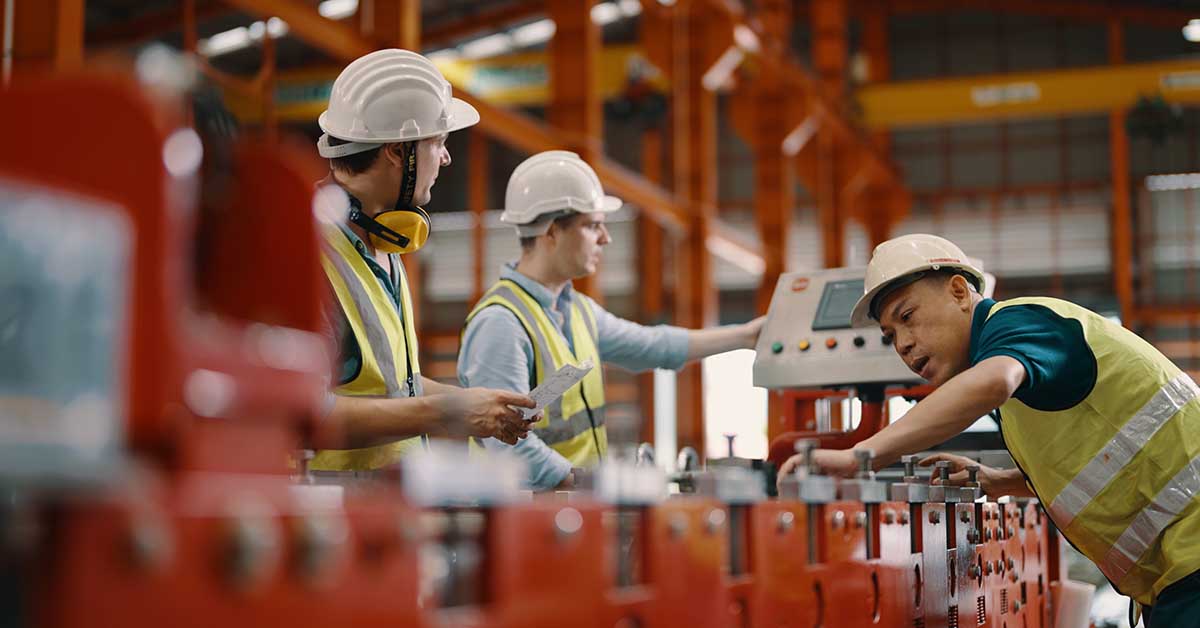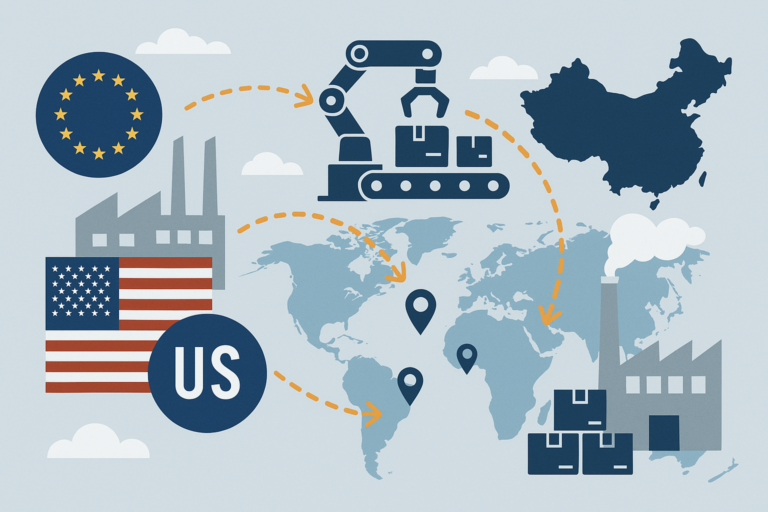How Indonesian Manufacturing Hubs Support U.S. Reindustrialization Goals
As the United States accelerates its reindustrialization strategy, a major component of success lies in creating resilient, diversified, and cost-efficient sourcing networks. Southeast Asia, particularly Indonesia, is emerging as a central hub supporting this objective. With its improving infrastructure, skilled labor pool, and increasing emphasis on high-value manufacturing, Indonesia plays a crucial role in enabling U.S. companies to restore domestic production capabilities while maintaining global competitiveness.
Indonesia’s Strategic Role in U.S. Supply Chains
Indonesia’s growing influence in global manufacturing is backed by its strategic geographic location, abundant natural resources, and strong government incentives for industrial development. Its position along key maritime routes makes it a prime location for integrating with U.S. inbound shipping networks.
For U.S. importers looking to rebuild core manufacturing sectors such as electronics, automotive, and textiles, Indonesian hubs offer a viable combination of affordability, scale, and technological adaptation. Leveraging this synergy becomes more accessible through collaboration with a reliable bestsourcing agent.
Cost Efficiency and Labor Readiness
U.S. companies aiming to reindustrialize are not just looking to bring production back home. They are also building hybrid models that allow for domestic assembly supported by offshore production of components. Indonesian hubs excel in this framework. Wages remain competitive compared to neighboring countries like China, while the labor force continues to receive upskilling in sectors like electronics assembly, garment production, and chemical processing.
The support of a bestsourcing agent asia ensures American buyers gain access to vetted factories, labor-compliant operations, and transparency throughout the production process.
Key Manufacturing Sectors Where Indonesia Supports U.S. Industry
Indonesia is diversifying from its traditional strengths in raw materials into high-precision, export-ready goods. These include:
-
Automotive components
-
Consumer electronics and PCB fabrication
-
Medical equipment manufacturing
-
FMCG product lines, including food packaging and plastics
The shift is partly driven by global investment in Indonesia’s industrial zones, such as those in West Java and Central Sulawesi. American firms partnering with a bestsourcing agent benefit from lower production costs without compromising on quality or compliance.
Infrastructure Investments Boost U.S. Collaboration
The Indonesian government’s significant investments in port modernization and industrial zone development make the country a strong logistics ally. Improved connectivity means U.S. firms can maintain faster turnaround times and reduce lead times in component supply.
A dedicated sourcing agent ensures clients benefit from the most efficient port access, warehousing strategies, and inland transportation setups. This logistical support is essential for U.S. buyers aiming to compete globally while maintaining lean inventories.
How Agents Facilitate U.S. Reindustrialization Strategy
A capable sourcing agent bridges more than just language and cultural gaps. They act as your eyes and ears on the ground, constantly evaluating supplier capabilities and risk. For U.S. firms, working with a bestsourcing agent asia means gaining insights into:
-
Local production regulations
-
Environmental compliance
-
Supplier certifications
-
Pricing negotiations and hidden cost mitigation
-
Factory readiness audits
Agents reduce the complexity of operating overseas, making it easier for American manufacturers to meet “Made in America” benchmarks while utilizing offshore support for components or materials.
ESG Goals and Sustainable Collaboration
With reindustrialization also comes increased scrutiny around sustainability. U.S. companies are increasingly under pressure to ensure ethical sourcing, carbon neutrality, and social responsibility. Indonesia’s industrial centers are rising to the occasion, offering certified green factories and waste-reduction processes.
Partnering with a verified bestsourcing agent enables U.S. brands to monitor and verify compliance with sustainability goals. This is critical for aligning sourcing efforts with ESG frameworks demanded by investors and regulators.
The Future of Bilateral Manufacturing Collaboration
U.S.-Indonesia ties are becoming more commercially strategic. Recent trade talks indicate stronger cooperation in sectors such as semiconductors, medical supplies, and renewable energy components. These developments highlight Indonesia’s potential to serve not just as a low-cost manufacturing partner but also as a source of innovation.
As reshoring in the U.S. gains momentum, the need for flexible, high-performance sourcing partners abroad becomes more urgent. Indonesian agents offer scalable, turnkey manufacturing support that complements the U.S. push toward industrial revival.
Conclusion
Indonesian manufacturing hubs are proving indispensable to the U.S. reindustrialization movement. From cost-effective production to improved logistics and sustainability, they provide an essential link for companies aiming to balance domestic growth with global competitiveness.
Accessing these advantages is most efficient when guided by an experienced bestsourcing agent. With knowledge of local markets and international quality benchmarks, these agents serve as the foundation for successful cross-border sourcing aligned with U.S. industrial objectives.

